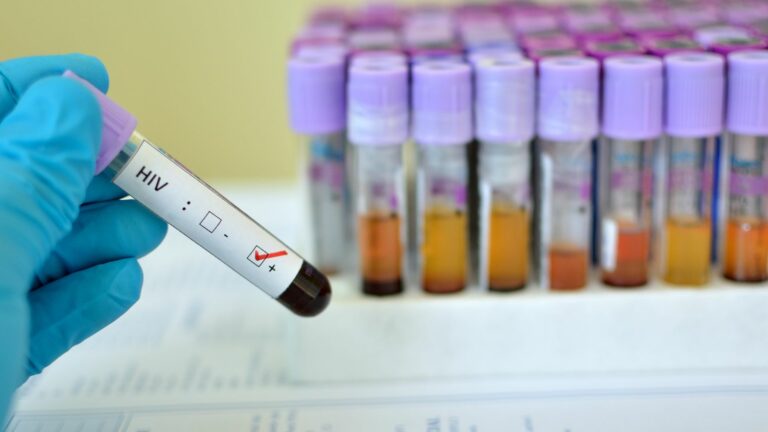
What is IVF Failure?
In vitro fertilization (IVF) is a powerful assisted reproductive technology, offering hope to countless couples facing infertility.
However, even with its potential, IVF doesn’t guarantee success. When an IVF cycle doesn’t result in a pregnancy, it’s termed “IVF failure.”
This can be a profoundly heartbreaking experience, leaving you with intense feelings of loss and uncertainty.
It’s crucial to remember that IVF failure doesn’t define your worth or your ability to become a parent. There are many reasons why an IVF cycle might not succeed, including factors like embryo quality, uterine receptivity, and age. For a deeper understanding of the IVF procedure and what to expect, visiting our IVF process and procedure page can provide comprehensive insights.
It’s essential to work with your fertility specialist to investigate potential causes and discuss options for future attempts.
Understanding the statistics around IVF can also be helpful. While success rates vary depending on individual circumstances, it’s important to know that not every cycle results in a baby.
For more information on the IVF success rate and how to increase your chances of IVF success, these resources can be invaluable.
Acknowledging this reality can ease some of the self-blame and disappointment that often accompany IVF failure.
Emotional Impact of IVF Failure
Coping with IVF failure isn’t only about the physical outcome; it carries a heavy emotional toll that can be overwhelming.
It’s completely normal to experience a whirlwind of emotions after a failed cycle, including:
- Grief: A deep sense of loss, not only for the potential child but also for the hopes and dreams you’d attached to this IVF attempt.
- Anger: Frustration at the unfairness of the situation, or sometimes even anger directed towards yourself, your partner, or your medical team.
- Disappointment: A crushing sense of disappointment after investing so much emotionally, physically, and financially in the IVF process.
- Self-blame: It’s common to question your choices or feel like you did something wrong, even when there might be no clear reason for the failure.
The emotional fallout of IVF failure can also strain relationships. Partners might grieve differently or have varying opinions on continuing treatment.
It’s important to communicate openly with your partner during this time. Feelings of isolation can also set in, so reaching out to loved ones for support or finding an IVF support group can be a lifeline.
For couples navigating these challenges, our page on mental health impact on partners during IVF and men’s voices in IVF offer further support and perspectives.
It’s essential to acknowledge and process these complex emotions. Bottling them up can lead to further emotional distress and make it harder to move forward.
For those needing guidance on managing the costs associated with IVF, resources on IVF cost in India and tips for IVF on a budget can provide financial planning assistance.
How to Cope After IVF Failure
While the pain of IVF failure is very real, there are ways to cope and find healing on this difficult journey.
Here are some strategies that can help:
- Seek Support:
- Therapy or counseling: A therapist specializing in infertility can provide a safe space to process your emotions and develop healthy coping mechanisms. Consider individual therapy or couples counseling to navigate this together with your partner.
- IVF support groups: Connecting with others who have faced similar challenges can be incredibly validating. Look for online or in-person support groups in your area.
- Trusted loved ones: Sometimes, simply talking to a supportive friend or family member can make a big difference.
- Therapy or counseling: A therapist specializing in infertility can provide a safe space to process your emotions and develop healthy coping mechanisms. Consider individual therapy or couples counseling to navigate this together with your partner.
- Self-Care:
- Nourish your body: Prioritize healthy eating and good sleep patterns to support your physical and emotional well-being.
- Gentle exercise and stress reduction: Activities like yoga, meditation, or spending time in nature can help manage stress levels.
- Journaling: Writing down your thoughts and feelings can be a powerful way to process grief and gain clarity.
- Nourish your body: Prioritize healthy eating and good sleep patterns to support your physical and emotional well-being.
- Taking a Break:
- Distancing yourself (temporarily): It might be necessary to step away from fertility treatments for a while. This allows time for emotional healing and a chance to recharge.
- Focus on other life aspects: Rediscover hobbies, spend quality time with loved ones, or pursue aspects of your life that have been on hold.
- Distancing yourself (temporarily): It might be necessary to step away from fertility treatments for a while. This allows time for emotional healing and a chance to recharge.
Deciding What’s Next
After experiencing IVF failure, it’s crucial to take the time you need to grieve and heal. When you’re ready, here are some important steps as you consider your next move:
- Talking to your fertility doctor: Schedule a follow-up appointment to review your IVF cycle and discuss potential causes of the failure. Your doctor can offer valuable insights and recommendations for any adjustments to future treatment plans.
- Exploring alternative options: If repeated IVF attempts haven’t been successful, discuss other family-building paths with your doctor. This might include using donor eggs or sperm exploring adoption, or considering other assisted reproductive technologies.
- Considering Your Limits: IVF can be emotionally, physically, and financially demanding. It’s essential to be honest with yourself about your capacity to continue treatments. Evaluate your resources and set boundaries to protect your overall well-being. If you’re unsure, counseling can help you navigate these complex decisions.
Exploring Other Paths to Parenthood
It’s important to know that there are multiple paths to parenthood. If you decide that continuing IVF isn’t the right option for you, here are some alternatives to consider:
- Adoption: Building your family through adoption can be a beautiful and fulfilling experience.
- Fostering: Providing a temporary home to a child in need can be a rewarding way to make a difference.
- Childfree living: Choosing to live a fulfilling life without children is a valid option.
Stories of Hope and Resilience After IVF Failure
Hearing stories of others who have navigated the pain of IVF failure and ultimately found their path to parenthood can be incredibly inspiring and comforting. Remember, even when it feels impossible, there are many ways to build the family you dream of.
Sharing these experiences can combat the sense of isolation that often accompanies IVF failure. They remind us that we are not alone on this path and that hope can be found even in the most difficult of times.
Additional Resources for Coping With IVF Failure
Here are some valuable resources to support you during this challenging time:
- Books: There are many helpful books addressing the emotional rollercoaster of infertility and IVF. They can offer guidance, validation, and a sense of community.
- Websites: Reputable websites often have insightful articles, blogs, and forums dedicated to the topic of IVF failure and coping strategies.
- Organizations: Many organizations specialize in providing support and resources specifically for individuals and couples navigating infertility.
Conclusion: A Message of Strength and Resilience
Coping with IVF failure is an undeniably heartbreaking experience. It’s okay to grieve, to feel lost, and to question everything.
But it’s important to remember that your strength is far greater than you might realize in this moment.
IVF failure does not define you, nor does it erase your hope of becoming a parent. There will be difficult days, but also moments of profound resilience.
Allow yourself time to heal, seek the support you need, and explore all the options available to you.
Remember, you are not alone. There is a whole community of individuals who understand your pain and support your journey.
Hold onto hope, be kind to yourself, and know that there is a path forward.






